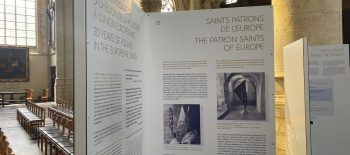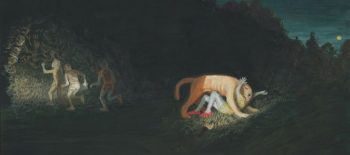Text written by Dariusz KOSIŃSKI
from the Zbigniew Raszewski Theatre Institute in Warsaw in the context of the project Too Soon Too Late. Remembering 1918 at Bozar.
(translation: Monika BOKINIEC)
Contrary to Western Europe, in Poland, 1918 is not remembered as the year in which the Great War ended. In Poland, the expression the ‘Great War’ sounds strange, if it could be related to anything, it would instead be to the Second World War which, for many reasons, is very well remembered (yet sometimes quite poorly) in our country. In the magnificent book Necro-performance. Cultural Reconstruction of the Theatre of the Great War (Nekroperformans. Kulturowa rekonstrukcja teatru Wielkiej Wojny), Dorota SAJEWSKA wrote that forgetting the Great War is something that fundamentally changes the attitude of Poles towards modernity, and perhaps even makes it impossible for us to become a modern society. With all its horrors, the Great War was after all a shocking experience of what had ultimately been created by European civilization with its nineteenth-century optimism, slogans of progress, and development. The joy at its end was mixed with a despair and a dramatic questioning about the meaning of civilization, which had reached a stage with the mass killing of its creators. The Great War, with all its effects, was eventually the end of the nineteenth century – the age of steam and electricity. In a sense, it was also the definitive end of ‘the Century of Lights’. In 1918, ‘old Europe’ no longer believed in its inviolable superiority and had lost sense of its righteousness. It attempted to put forward a brave face and appear sophisticated, though everyone knew that the king was naked and his body was sick and wrinkled.
In Poland and in many countries of Central and Eastern Europe, 1918 has a completely different meaning. For us, it is the year of regaining independence after 123 years of joint occupation by Russia, Prussia, and the Austro-Hungarian empires. For us, this is our moment of liberation from a captivity that ‘old Europe’ had treated us together with its Great Other – Russia. The memory of this captivity, which returned 20 years later, together with an affirmation and consent of ‘old Europe’, not only has fed nationalist resentment causing Poland to transition so easily from leader to hooligan of the European Union, but also complicates to the extreme our sense of European identity. We feel European, however, it is clear that we are not the same as the countries of ‘old Europe’, which, through all the changes, still act as arbitrators of Europeanness. Not only for Europe, but also in our own eyes, we are the ‘little others’, strange cousins who, although they belong to the family, do not entirely keep to its codes and rules. You never know what they might do. They always seem ready to jump on the table, overturn glasses with their feet, and dance their differences. But dance with a tear in their eyes as they would like to become a real member of the family…
By remembering 1918, we remind ourselves and Europe about that with which I began this text: that we live ‘in contrast’. This situation, which can have, and did have quite negative consequences, can also be treated as a creative condition with great potential. Distinguishing oneself within big politics often leads (at least in the history of Poland) to catastrophic loneliness and loss of self-determination, though in art it has special value and even establishes a foundation of creativity. Art is based on distinguishing, on introducing a different perspective, other stories, other scenes. On making trouble. Europe of course faces many problems, but perhaps it is because of these that it doesn’t care enough about artists?
As part of the 1918 Europeans Dreams of Modernity 100 Years On project, we are exhibiting works which are not obvious, not distinctive, and embarrassing. Truly independent. Artistic independence is not only the freedom of creators from external limitations, it is also freedom from our own limitations, or at least endeavouring and aspiring towards it. Perhaps this is the point where different European memories of 1918 meet – the year that made the Old Continent aware of its limitations and at the same time a year of regaining independence. The related challenges are for sure, not a thing of the past.



